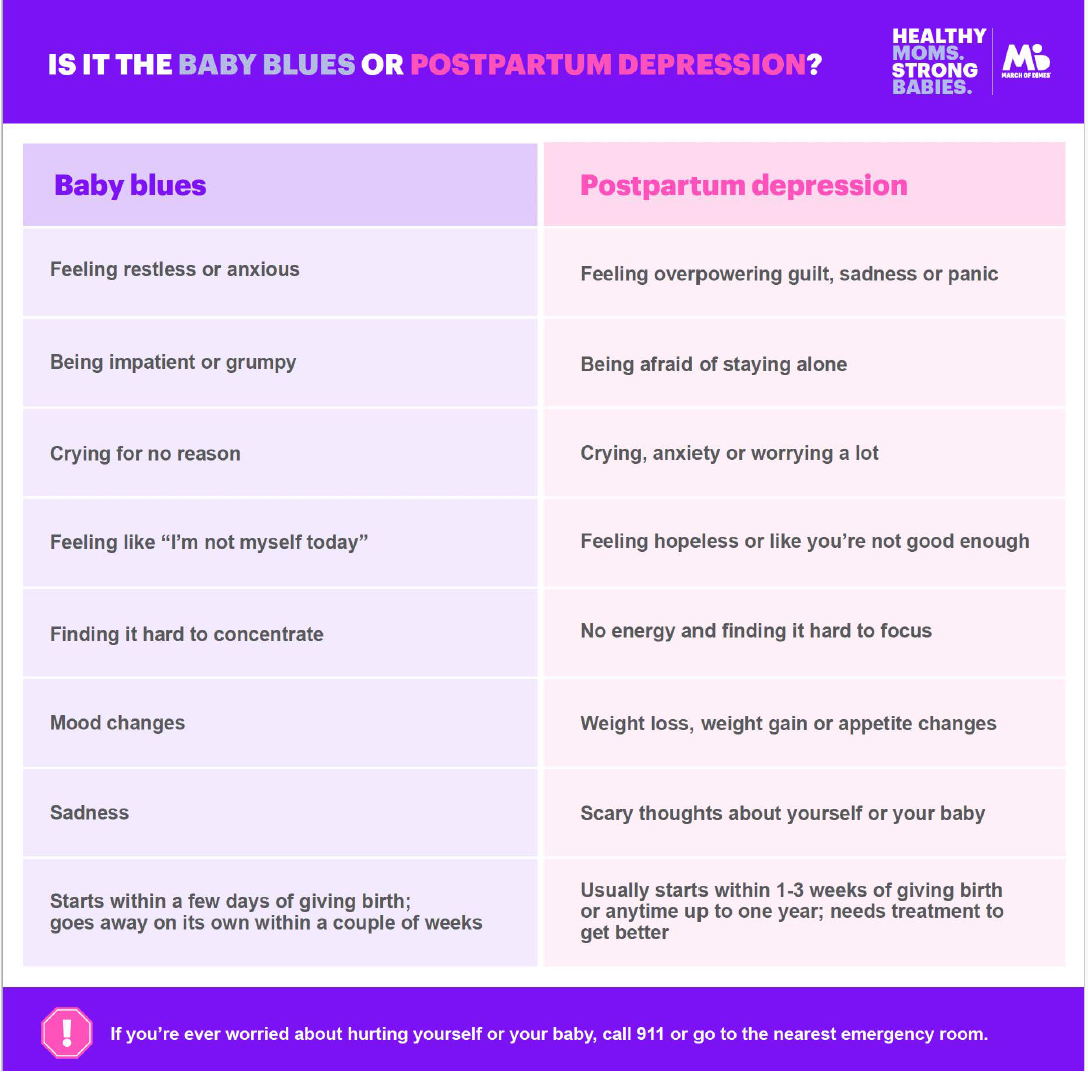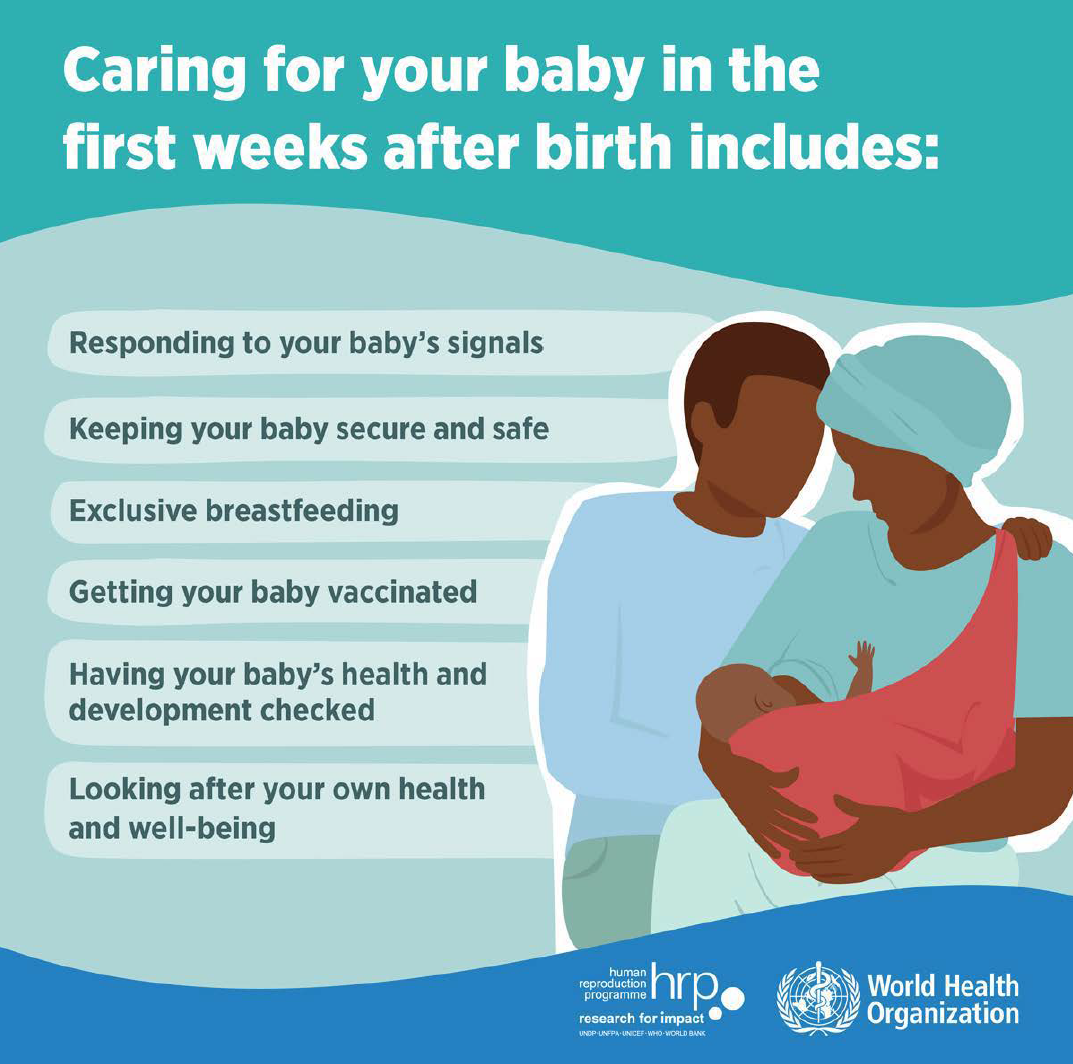No
Taking Care of You
The time after the delivery of your baby is known as the post-partum period. This is a recovery phase that is essential for your physical/emotional healing and allows you to adapt to the changes that you have been through over the last 40 weeks.
Each post-partum period will be different for each woman. Your recovery time and care needs will be impacted by your individual situation and state of health. If you've had a c-section delivery, anticipate a longer recovery time and additional care instructions.
We encourage you to:
- Follow the discharge instructions that you received from the hospital or birthing center
- Continue care as directed by your medical provider.
- Share any new concerns or questions that you may have with your medical provider.
- Review the
 Maternal Warning Signs, report any issues to your medical provider.
Maternal Warning Signs, report any issues to your medical provider.
For information about your body after your baby is born and healing:
Getting Pregnant Again, Contraception
Interpregnancy is the time interval between the birth of a baby or pregnancy loss to the next pregnancy. This time is very important for your physical and mental healing from the pregnancy and birth of a child.
The time between pregnancies is a time to focus on your overall health. Appointments with your medical provider may address:
- Pregnancy complications, risk factors
- Breastfeeding
- Family planning
- Current and long-term health conditions
- Health screenings
- Identifying a medical home for health management
Birth spacing is the time interval between the birth of a child to the next pregnancy.
The American College of Obstetrics and Gynecology recommends that women avoid another pregnancy for at least 6 months from the birth of a child. Decision-making about birth spacing is between you and your partner and may involve use of contraception to prevent pregnancy. Your medical provider is a resource to discuss your intentions for birth planning and types of contraception that may be best for you.
Additional information about contraception, interpregnancy health is available through:
Mental Health is Important Too
Being healthy means focusing both on your physical and mental well-being. You and your family have been through a big, life change with the pregnancy and bringing a new baby home.You and/or your partner may experience depression after a baby is born. Do not be afraid to seek help and ask for assistance.
If you are having depressive symptoms that are not going away or feeling like you may harm yourself, someone else, or your baby- please get help right away!
- Call the National Suicide and Crisis Hotline - 988
- Call the National Maternal Mental Health Hotline - 1-833-852-6262
- Call Emergency Response Team - 911
- Go to your local emergency room
- Call your healthcare provider
- Contact THRIve at the UNMC Monroe-Meyer Institute -
 Supporting NICU Families: Postpartum Mental Health
Supporting NICU Families: Postpartum Mental Health
 Is it the Baby Blues or Postpartum Depression? (Printable & Accessible Version)
Is it the Baby Blues or Postpartum Depression? (Printable & Accessible Version)
For more resources about mental health during and after pregnancy, refer to:Feeding Your Baby
The American Academy of Pediatrics (AAP) recommends that all newborns be fed breast milk, exclusively, for at least the first 6 months after birth. Breast milk is considered the best food choice your newborn in their first year of life.
Benefits of breast feeding:
| Mom | Baby |
- Decreases risk for breast and ovarian cancers
- Decreases risk of type 2 diabetes mellites
- Decreases risk of high blood pressure
- Convenience for feeding baby
| - Protects baby from illness due to the antibodies in the breast milk that help the baby to build stronger immunity
- Breast milk meets the nutritional needs of the baby
|
Adapted from: NE DHHS, CDC, MOD
We recognize that not all moms or parents will be able or want to feed their babies breast milk, that is okay too. We understand that some babies require special formula for medical reasons.
Your baby's doctor and medical team will guide you on breastfeeding your baby or formula use and preparation if that is your choice.
Resources available to you related to breastfeeding, returning to work while breastfeeding, and formula feeding your baby include:
Taking Care of Your Baby
At the hospital your baby will have newborn screening for certain conditions via blood-spot, hearing, and heart testing, as required by law. Hospital staff will work with you to address any positive screens and plan for follow-up action. Babies born outside of the hospital are required to have these tests done when your baby is 24 to 48 hours old.
Once discharged, bringing home a new baby from the hospital is a BIG deal and carries a lot of responsibility.
We encourage you to
- Follow the discharge instructions for care of your newborn that you received in the hospital or birthing center
- Communicate with your baby's provider about any concerns that you may have about his/her health
- Attend well-child checkups when your baby's provider recommends them
- Have your car seat checked to see if it is installed correctly. Find a time and place to get your car seat checked here:
 Statewide Event Calendar
Statewide Event Calendar
For information about caring for a newborn, please visit:
OASH: Newborn Care and Safety
 Caring for your Baby in the First Weeks (Printable & Accessible Version)
Caring for your Baby in the First Weeks (Printable & Accessible Version)